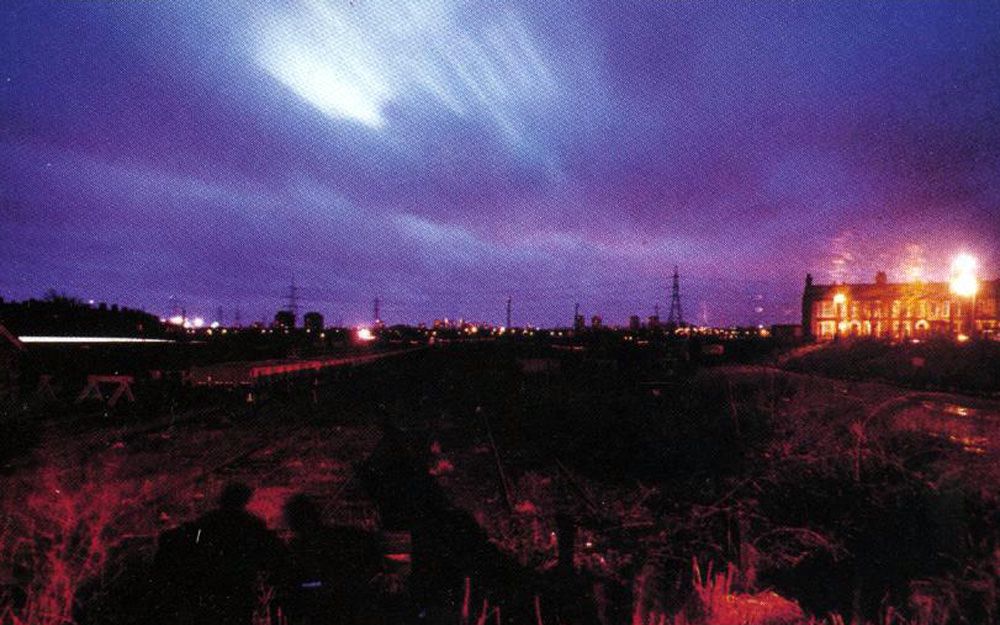Bark Psychosis’ Hex Turns 25

This will probably sound pretentious, but there are a handful of albums that you need to hear if you want to “get” me, if you want to better understand how I think and feel, particularly about music. One such album is Bark Psychosis’ Hex, which turns 25 years old today.
I still remember when I first heard the album’s opening songs — “The Loom,” “A Street Scene,” and “Absent Friend” — courtesy of a mixtape from an internet acquaintance. At the time, I had no idea that my ideas of music were about to be up-ended. The songs’ mercurial blend of rock, jazz, classical, and Lord knows what else, along with Graham Sutton’s breathy vocals and cryptic lyrics, sounded like nothing I’d ever heard before. Listening to it, I felt like I was peering over the border into some barely charted territory. And that’s still often the case now, two decades after that first listen.
Hex, along with releases like Talk Talk’s Laughing Stock and Disco Inferno’s D. I. Go Pop, created the template for what would come to be labelled “post-rock.” (Indeed, Hex is basically the gold standard by which I, consciously or otherwise, evaluate any so-called post-rock album.) In this excellent essay, Stereogum’s Ian King considers Hex’s legacy and influence, as well as the varying circumstances that led to its creation.
Lingering over the afterlife of Hex is the matter of whether it’s possible to interpret the legacy of the album and all of Bark Psychosis’ original catalog… outside of the post-rock framework now so tightly assembled around it. [Simon] Reynolds had for a while been collecting evidence for this new scene before Hex came out, but his review of the album in the March 1994 issue of Mojo magazine functioned as a dress rehearsal for his formal unveiling of post-rock in The Wire a few months later. Bark Psychosis “could be called ‘art rock’,” he allowed in that latter article. “Art rock” would likely have been the tag had Hex come out a year or two earlier, but the link to post-rock would have been made eventually. That Hex in its day was one of the first records to be identified as part of this new genre was, again, a matter of timing.
Distance from that era now makes it easy to notice similarities between Hex and other groups that were pulled into the post-rock conversation. The limber vibraphone and dub-inflected bass of “Big Shot” bring Tortoise immediately to mind. Sutton’s half-throated hush, especially, in the context of songs like these, echoes the quieter exhalations of June of 44 guitarist/vocalist Jeff Mueller. The glistening guitar patterns in “Absent Friend” trace a blueprint for the widescreen emotional moments of Explosions In The Sky and their kind. One spin of Hex is enough to catch traces of many post-rock bands from both Bark Psychosis’ own time and after, but it is impossible to know (without asking the musicians themselves) which are instances of influence and which are just two artists arriving at similar conclusions from different origins. What gave the idea of post-rock its allure was not so much the charisma of a tied-together scene, but the notion that a novel energy was in the air.
[…]
Twenty-five years later, Hex is still more than capable of exerting a mysterious pull on its listener — and it is ‘listener’ singular, the album emits an aura of isolation. Spending long spells of time with it has the effect of making other rock-based records both past and present sound trad and predictable. Like in Danielewski’s House Of Leaves, new spaces open up in Hex where they weren’t before, its interior world grows beyond its bounds. It refutes the perception that this kind of music, with all its texture and complexity, was an intellectually distant pursuit. Ling had spoken early on about the spirituality and mysticism in what Bark Psychosis did, and that unquantifiable element doesn’t ebb over time or repetition. Bark Psychosis couldn’t hold together, but Hex’s power remains.
Bark Psychosis’ Hex was originally released on February 14, 1994, by Circa (a subsidiary of Universal Music Group). It was reissued in 2017 by Fire Records.